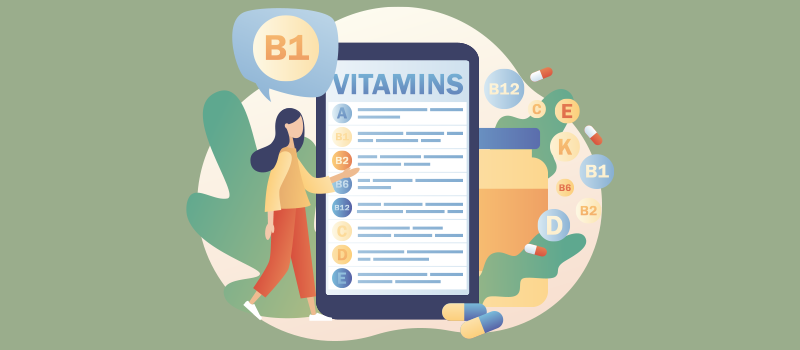What’s the Buzz
The Bee Healthy Blog
How To Monitor Diabetes During Pregnancy?

When high blood glucose levels are detected for the first time during pregnancy, you have gestational diabetes. Like other types of diabetes, it affects how cells use glucose. A high blood glucose level can affect the pregnancy, the mother’s health, and the baby's health.
The American Diabetes Association (ADA) estimates that 2 to10% of women develop gestational diabetes during their pregnancy. Please continue reading to learn more about this condition, including how gestational diabetes is diagnosed and what happens if you develop gestational diabetes.
How do you know if you have gestational diabetes?
Some women may have increased thirst and frequent urination. However, in most women, gestational diabetes does not cause any specific symptoms.
Certain risk factors can increase the chances of pregnant women developing gestational diabetes, such as:
- Overweight or obese
- Lack of physical activity
- Gestational diabetes during a previous pregnancy
- The previous baby weighed over 9 pounds (4.1 kgs)
- Prediabetes
- Polycystic ovary syndrome
- Family history of diabetes
- Black, Hispanic, Asian American, or American Indian race
How is gestational diabetes diagnosed?
You may be diagnosed with gestational diabetes based on the results of a screening test that doctors usually order in the second trimester of pregnancy (between 24 and 28 weeks gestation).
In high-risk women, health care professionals may screen for gestational diabetes earlier on, such as at the first prenatal visit.
The screening test for gestational diabetes is usually a glucose tolerance test, which is a blood test that’s done after drinking a sugary solution.
What is the treatment for gestational diabetes?
Pregnant women with gestational diabetes usually see their blood sugar levels return to normal after delivery. However, women who’ve had gestational diabetes are at higher risk of developing type 2 diabetes later on, and therefore they should have blood sugars tested more frequently.
Although the condition is temporary, controlling sugar levels in the mother’s blood during pregnancy is important to keep the mother and baby healthy and prevent difficulties when giving birth.
The treatment for gestational diabetes consists of lifestyle changes, blood sugar monitoring, medications, and insulin therapy if needed.
Lifestyle Changes
Since the woman’s body supports a growing baby, weight loss is not advised during pregnancy. However, it’s important to eat a healthy diet and participate in a regular exercise program (doctors recommend moderate exercise for 30 minutes a day). This helps to maintain an ideal body weight during the pregnancy.
Blood Sugar Monitoring
Women diagnosed with gestational diabetes may need to check their blood sugar levels several times daily. Self-monitoring is important because as the pregnancy progresses, the placenta releases more hormones that work against insulin, which can raise blood glucose levels.
Glucose monitoring helps determine if you need medications or insulin for careful control of your and the baby’s blood sugar levels.
Your digestive and kidney health care team can advise you about the options for self blood glucose monitoring, such as a lancet and test strip or a continuous glucose monitor.
Medications
If lifestyle changes like diet and exercise habits do not control blood sugar levels, your health care providers will develop a treatment plan for gestational diabetes. This may include taking oral medications or insulin injections to reach your blood glucose goals.
The management of gestational diabetes is primarily with insulin, as studies have shown greater benefits. However, there is a new source of studies advocating the use of antidiabetic agents such as metformin or glyburide; studies are still lacking to reach conclusions.
Monitoring
If you are diagnosed with gestational diabetes, your health care provider will closely monitor your baby during the pregnancy and after delivery.
Doctors will monitor the baby's heart rate and growth with ultrasounds and other tests. If you don't spontaneously go into labor by your due date, your health care provider may induce labor because delivery after the due date can increase the risk of complications for both the mother and baby.
After you deliver, your doctor will monitor your blood sugar level for 6-12 weeks to ensure it returns to normal.
How does gestational diabetes affect the baby?
It’s important to manage gestational diabetes because it is associated with an increased risk of:
- High birth weight: Very large babies over 9 pounds are more likely to have a difficult vaginal birth, suffer birth injuries, or require C-section delivery.
- Preterm delivery: High blood sugar can increase the risk of early labor and delivery. Babies born early can experience serious breathing difficulties. However, your doctor may recommend inducing labor early if the baby is large.
- Stillbirth: If gestational diabetes is not treated, there’s an increased risk of the baby dying before or shortly after birth.
- Severe hypoglycemia (low blood sugar): This can occur in the baby after birth and can lead to seizures. Feeding the baby promptly or intravenous glucose can help bring the baby's blood sugar level to normal.
- Obesity and type 2 diabetes: Babies born to mothers with untreated gestational diabetes have a higher risk of developing obesity and type 2 diabetes when they are older.
What are the complications of gestational diabetes in the mother?
Gestational diabetes can increase the risk of high blood pressure and preeclampsia (a serious and life-threatening complication of pregnancy). It is also associated with a higher chance of needing a C-section delivery. Women who develop gestational diabetes during one pregnancy are more likely to get it again during future pregnancies. They also have a higher risk of developing type 2 diabetes later on in life.
How to prevent gestational diabetes?
There is no way to 100% prevent gestational diabetes. Still, healthy habits like eating right, exercising regularly, starting the pregnancy at a healthy weight, and gaining only the recommended amount of weight during the pregnancy can reduce your risk of gestational diabetes and developing type 2 diabetes in the future.
References:












SOCIAL